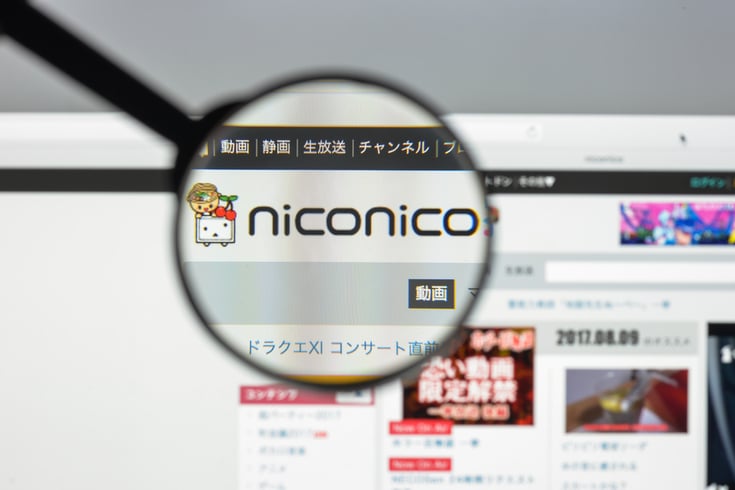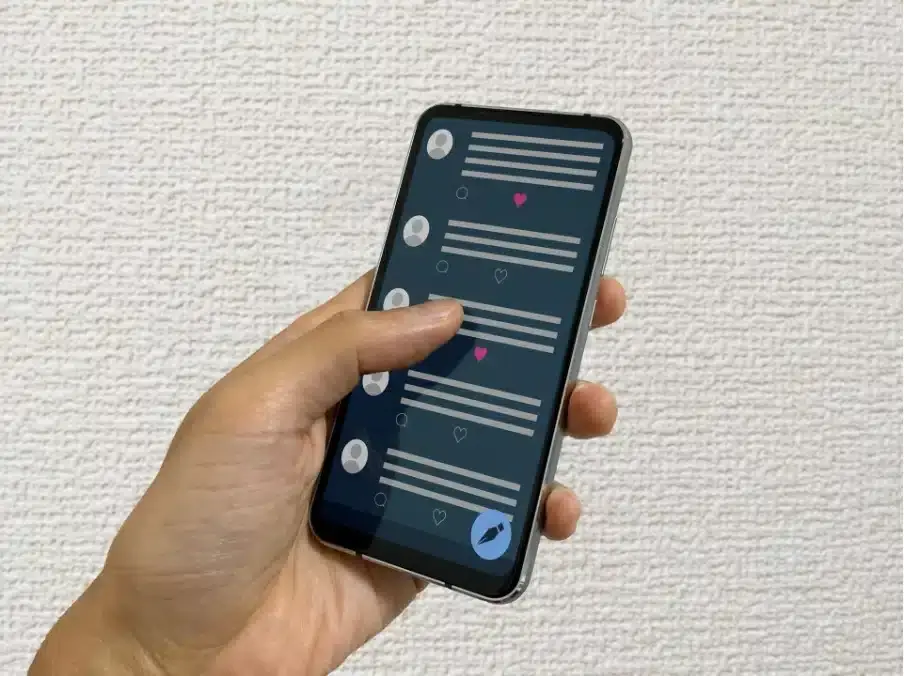Thorough Explanation of the Privacy Rights: What are the Three Elements of Infringement?

What if your personal information, such as your home address, phone number, medical history, or criminal record, were exposed…?
In recent years, with the development of social media, there has been an increase in number of cases where the most important information is being made public by others.
So, what can be done to deal with such malicious invasions of privacy? Below, we will discuss this issue using some precedents.
What is Privacy Invasion?
Privacy invasion occurs when information about one’s private life, which was not previously disclosed to third parties, is made public, causing discomfort to the victim, even if the information is true.
While there is no provision in the Japanese Criminal Code to punish privacy invasion, it does incur civil liability.
Typical Examples of Privacy Infringement Recognized in Precedents
So far, the following are typical examples of privacy infringement recognized in precedents:
- Criminal record/History
- Origin
- Disease/Medical history
- Fingerprints
- Physical personalityistics
- Daily life/Behavior
- Name/Address/Phone number
- Private matters within the family
The above are basically the same even in the case of defamation on the Internet.
We often hear the phrase “invasion of privacy”, but in fact, there is no provision for “invasion of privacy” in the Japanese Criminal Code. Instead, it is possible to claim for damages as a tort under the Japanese Civil Code.
So, how has the right to privacy, which has not been codified, evolved to be recognized? Let’s dig into it along with the precedents.
The Right to Privacy Has Been Recognized in Case Law
The right to privacy has come to be recognized as a “right” in case law as society has developed. The famous case that triggered this was the “After the Banquet” incident. In this case, three requirements for privacy infringement were clearly stated.
(1) It is a matter of private life or something that could be perceived as a fact of private life.
(2) It is a matter that would not want to be made public when viewed from the perspective of the individual in question, based on the sensitivity of the general public, in other words, a matter that would be recognized as causing psychological burden and anxiety by being made public, based on the sense of the general public.
(3) It is a matter that is not yet known to the general public.
Let’s take a look at the content of the precedent.
The “After the Banquet” Incident and the Privacy Rights

The origin of the “Privacy Rights” is the novel “After the Banquet” published by Yukio Mishima in 1960 (Showa 35).
This novel is based on the actual life of Yutaka Arita, who served as a Foreign Minister after building his career as a diplomat, and ran for the Tokyo gubernatorial election twice. Arita, who was modeled as the protagonist, Yugen Noguchi, claimed that he suffered mental anguish due to the content of the novel, and demanded 1 million yen for damages and an apology advertisement from Mishima and Shinchosha (a Japanese publishing company). Arita argued, “After the Banquet” peeped into the plaintiff’s private life at will and made it public, causing the plaintiff unbearable mental anguish when he was earnestly wishing to spend a peaceful retirement.”
In response to this lawsuit, the Tokyo District Court ordered Mishima and Shinchosha to jointly pay Arita 800,000 yen on September 28, 1964 (Showa 39) (the court did not allow the publication of an apology advertisement), and explicitly stated in the judgment that “the so-called privacy rights is understood as a legal guarantee or right not to have one’s private life arbitrarily made public”. This is considered to be the first case law to recognize the privacy rights.
The Truth or Falsehood of the Description is Not the Issue
The point to note here is that in the case of privacy infringement, what is being questioned in the above requirements is the “theme” of “what kind of matter it is”, and the truth or falsehood of the description is not considered as an issue. For example, if a person’s criminal record, origin, etc. are described, the issue is whether such “themes” meet the requirements, and whether the described criminal record or origin is correct or not is not considered an issue in relation to “whether or not privacy is infringed”.
Freedom of Expression in Literature is Not Absolute
On one hand, the Constitution also recognizes freedom of expression. Regarding the comparison between freedom of expression and the privacy rights, it is stated that “if the protection of privacy is recognized under the requirements mentioned above, it is obvious that if there is a legally justified reason for disclosing the private life of others, the illegality is lacking and ultimately the tort does not occur.” Followingly, it is stated that freedom of expression in literature is not absolute.
The next case law to be introduced is also a case law on the right to privacy of a person who became a model for a novel. The point at issue was “whether an individual’s appearance belongs to privacy”.
The “Fish That Swim in Stone” Incident and the Right to Privacy

“Fish Swimming in Stone” is a novel that was published in September 1994 (Heisei 6) by the magazine “Shincho”, and is the debut work of Miri Yu. The model for the novel is a Korean woman living in Japan who is a friend of Yu’s and has a large tumor on her face.
Since there was no talk of Yu writing a novel with her as a model both before or after the publication, the woman who became the model bought the book after being informed by a friend, was greatly shocked, and protested to the author for privacy infringement, but was not heard. Therefore, she filed a provisional injunction to stop the publication.
Yu argued, “The plaintiff is not a celebrity, so readers will not identify the personality Park Rika in the story with the plaintiff, and since it is pure literature, the degree of fiction is high. Also, regarding appearance, privacy does not apply,” and decided to fight the case.
The Tokyo District Court in the first instance ordered the author, Miri Yu, Shinchosha, and the editor-in-chief to jointly pay 1 million yen in damages, and separately ordered Miri Yu to pay 300,000 yen.
The judgment states as follows:
There is an unspecified number of readers who know the plaintiff’s attributes, so it is possible to identify the plaintiff with the personality in the work. Also, no significant transformation has been made in the description. The current facts and fictional facts are expressed as one, and readers cannot easily distinguish between these truths and falsehoods. Therefore, there is a high risk of misunderstanding fiction as fact, which infringes on the plaintiff’s privacy and honor feelings.
Tokyo District Court, June 22, 1999 (Heisei 11)
Yu appealed, but the Tokyo High Court dismissed the appeal on February 15, 2001 (Heisei 13), stating that “publicizing the fact of a tumor is an infringement of personality rights,” and again recognized the injunction.
Yu further appealed to the Supreme Court, but on September 24, 2002 (Heisei 14), the Supreme Court, without holding an oral argument, recognized that “by publicizing a woman’s privacy in a novel that does not involve public interest, the honor, privacy, and honor feelings of a woman who is not in a public position were infringed,” and that “if published, it could cause irreparable damage to the woman,” and handed down a judgment dismissing the appeal.
Does an Individual’s Appearance Belong to Privacy?
One of the issues in this trial was whether an individual’s appearance belongs to privacy. Yu argued that “privacy does not apply to appearance,” but the first instance judgment states, “Even those who do not know the plaintiff and do not know about the tumor can become readers of this novel, it is not possible to deny the possibility that those who know the plaintiff as a specific person could be the readers of this novel, and disclosing the fact of the tumor infringes on the plaintiff’s privacy.”
In the appellate court’s judgment, it is stated that “The fact of a person’s disability or illness is one of the most unwanted types of information about a person. Especially the fact of a disability related to appearance, if it is a rare type of disease like this case, when it is made public along with other attributes of the person, it itself becomes the object of curiosity of the surroundings,” and it is considered to be an infringement of privacy. It further stated that “it lacks consideration for a person who has a tumor disability on the face.”
The Scope of Privacy Infringement Recognized in Court

Through the accumulation of precedents obtained in court cases such as the “After the Banquet” incident and the “Fish Swimming in Stone” incident, the scope of privacy infringement is gradually being defined. In the “non-fiction ‘Reversal'” case, the issue of ‘facts related to criminal records’ was disputed. The judgment was explicitly stated as follows:
After a person has received a guilty verdict or completed their sentence, it is expected that they will return to society as a citizen. Therefore, that person has the right not to have their newly formed peaceful social life disturbed or their rehabilitation hindered by the publication of facts related to their criminal record.
Supreme Court, February 8, Heisei 6 (1994)
In this judgment, it is recognized that there are cases where the publication of facts related to criminal records is exceptionally allowed, stating that damages can be claimed only when the ‘legal interest of not having facts related to criminal records published’ is superior, compared to the ‘necessity of publishing facts related to criminal records using real names in works’.
Furthermore, on December 15, Heisei 7 (1995), the Supreme Court stated, “Fingerprints are patterns on fingertips and do not provide information about an individual’s private life, personality, thoughts, beliefs, conscience, etc. However, due to their unique and lifelong unchanging nature, depending on how the collected fingerprints are used, there is a risk of infringing on an individual’s private life or privacy.” It also stated, “Article 13 of the Japanese Constitution is interpreted as stipulating that the freedom of private life of the people should be protected against the exercise of state power. Therefore, as one of the freedoms of private life, everyone has the freedom not to be arbitrarily forced to fingerprint.”
As the concept of privacy has emerged and been recognized in precedents in response to societal changes, as the informatization of society progresses, the concept of privacy would also change and develop further.
Benefits of Hiring a Lawyer
While it is possible for clients to resolve legal issues on their own, there are limitations to the legal procedures that a layperson can perform, and the likelihood of negotiations breaking down increases.
Lawyers, with their extensive legal knowledge, can conduct appropriate legal procedures and advance negotiations in your favor. As your representative, they can interact with the opposing party on your behalf, sparing you from direct contact. Furthermore, they handle everything from complex legal paperwork to negotiations and court proceedings. Lawyers are on your side. If a problem arises, don’t try to solve it on your own; consult a lawyer first.
Summary
As we have explained so far, privacy infringement is a legally complex issue. There are no clear legal provisions, and it is established through accumulated court cases that three requirements are necessary. There are limits to the legal procedures that clients who are not legal experts can undertake, and negotiations are likely to be difficult.
If you consult with a lawyer, there are many cases where negotiations can be advanced favorably due to appropriate legal procedures based on extensive legal knowledge.
Furthermore, it is the lawyer, not the client, who directly contacts the party posting information that constitutes a privacy violation. Therefore, there is no need for the client to make contact, and the lawyer will handle the complicated legal document procedures.
If you are troubled by privacy violations on the internet, consider consulting with a lawyer who has extensive experience in reputational damage control.
Category: Internet





















